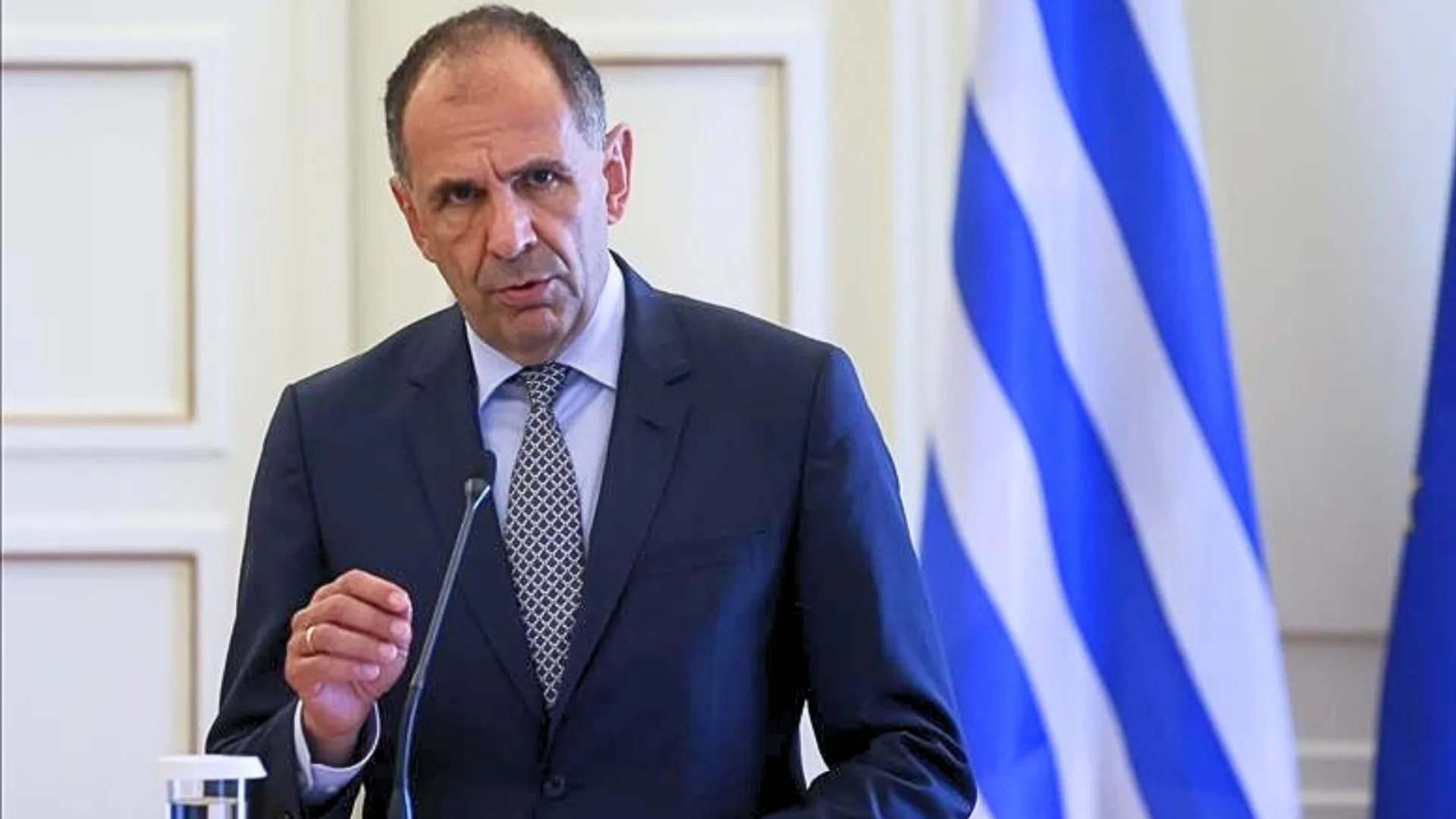Greek Foreign Minister George Gerapetritis expressed his condolences and offered support to North Macedonia following a devastating nightclub fire in Kocani that claimed 59 lives.
In a phone conversation with his North Macedonian counterpart, Timcho Mucunski, Gerapetritis extended Greece’s readiness to provide any necessary assistance, including life-saving rescue teams and medical support.
“A tragic fire broke out last night in Kocani, resulting in a devastating loss of life,” stated the Greek Foreign Ministry.
“Gerapetritis expressed Greece’s willingness to assist with rescue and medical efforts.”
Some injured victims are expected to be transferred to Thessaloniki hospitals, with ongoing discussions between the two nations.
The fire, which occurred early Sunday during a concert at Club Pulse, left 59 dead and 155 injured, with authorities attributing the blaze to pyrotechnics causing the roof to catch fire.
Videos of the scene show chaotic evacuations as the fire engulfed the building.
North Macedonia’s Health Minister Arben Taravari confirmed that 118 people were hospitalised, many with severe burns.
FM Gerapetritis expressed Greece’s readiness to provide any necessary assistance, including life-saving rescue teams & medical support.
— Υπουργείο Εξωτερικών (@GreeceMFA) March 16, 2025
The tragic incident has sparked an outpouring of support from neighbouring countries, including Albania, Bulgaria, Greece, and Serbia.
“This is a difficult and very sad day for Macedonia. The loss of so many young lives is irreparable,” said Prime Minister Hristijan Mickoski.
President Gordana Siljanovska-Davkova visited burn victims, while relatives of the deceased gathered outside hospitals, grieving the loss of their loved ones.
In an emotional statement, Dragi Stojanov, father of a 21-year-old victim, said, “He was my only child. I don’t need my life anymore.”
The fire, which partially collapsed the roof of the club, is under investigation, with authorities scrutinising the venue’s safety provisions.
A state prosecutor confirmed that arrests had been made in connection with the incident.
The tragedy has prompted condolences from leaders across Europe, including EU Foreign Policy Chief Kaja Kallas, Albanian Prime Minister Edi Rama, and Ukrainian President Volodymyr Zelenskyy, all expressing solidarity with the people of North Macedonia during this difficult time.
Source: Ekathimerini.
